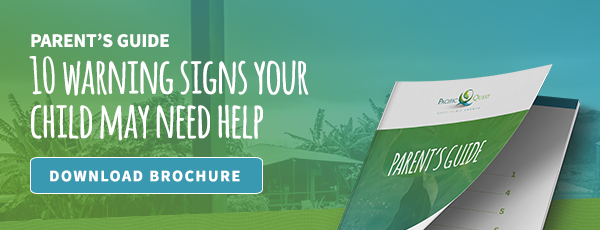Parenting teens is never easy, and when your teenager is diagnosed with clinical depression, it can become overwhelming. You may feel exhausted from lying awake at night worrying about your child. The despair over failed attempts to communicate is tough to bear. Endless fights and open defiance create chaos that affects the entire household. Parenting a teen suffering from depression often feels like an impossible task. But there is help for you and your teen.
The Journey Forward
The first step in helping your teen survive and recover from depression is to consult a doctor, counselor, therapist, or other mental health professional for assistance in finding the appropriate treatment.
In some cases, primary care doctors will prescribe an antidepressant medication, but it is vital to do your research. Studies of the effects of these types of drugs in teens is limited. Take time to evaluate the benefits and risks and be sure to ask your teen’s doctor plenty of questions. Medicating is not always the answer—or at least not the whole answer— and alternative options exist. If medication is not the answer, open your mind to the idea of alternative therapies.
Psychotherapy, a.k.a. Psychological Counseling, is a standard treatment option that may be a strong alternative to helping your teen uncover dangerous and unhealthy behaviors or thoughts. Not only does psychotherapy highlight these behaviors, it also functions to explore relationships and experiences, and to learn coping methods for solving real-life problems.
Psychotherapy treatment, however, should be used depending on the clinical needs of your teenager. Cognitive capabilities, behavioral issues, and interpersonal strengths and weaknesses are all factors to consider. There is a high prevalence of depression among teenagers, and although psychotherapy is considered a “standard” option, that doesn’t mean it’s always the best treatment option for your child.

The Best for Your Teen: Treating Teenage Depression
Parenting teens is never easy, and when your teenager is diagnosed with clinical depression, it can become overwhelming. You may feel exhausted from lying awake at night worrying about your child. The despair over failed attempts to communicate is tough to bear. Endless fights and open defiance create chaos that affects the entire household. Parenting …
Parenting teens is never easy, and when your teenager is diagnosed with clinical depression, it can become overwhelming. You may feel exhausted from lying awake at night worrying about your child. The despair over failed attempts to communicate is tough to bear. Endless fights and open defiance create chaos that affects the entire household. Parenting a teen suffering from depression often feels like an impossible task. But there is help for you and your teen.
The Journey Forward
The first step in helping your teen survive and recover from depression is to consult a doctor, counselor, therapist, or other mental health professional for assistance in finding the appropriate treatment.
In some cases, primary care doctors will prescribe an antidepressant medication, but it is vital to do your research. Studies of the effects of these types of drugs in teens is limited. Take time to evaluate the benefits and risks and be sure to ask your teen’s doctor plenty of questions. Medicating is not always the answer—or at least not the whole answer— and alternative options exist. If medication is not the answer, open your mind to the idea of alternative therapies.
Psychotherapy, a.k.a. Psychological Counseling, is a standard treatment option that may be a strong alternative to helping your teen uncover dangerous and unhealthy behaviors or thoughts. Not only does psychotherapy highlight these behaviors, it also functions to explore relationships and experiences, and to learn coping methods for solving real-life problems.
Psychotherapy treatment, however, should be used depending on the clinical needs of your teenager. Cognitive capabilities, behavioral issues, and interpersonal strengths and weaknesses are all factors to consider. There is a high prevalence of depression among teenagers, and although psychotherapy is considered a “standard” option, that doesn’t mean it’s always the best treatment option for your child.

Questions? Call or Text our Admissions Team: 808-937-5806